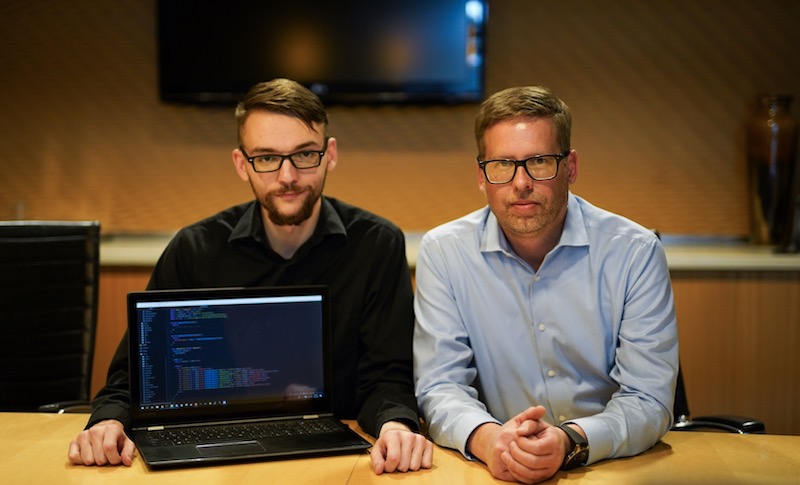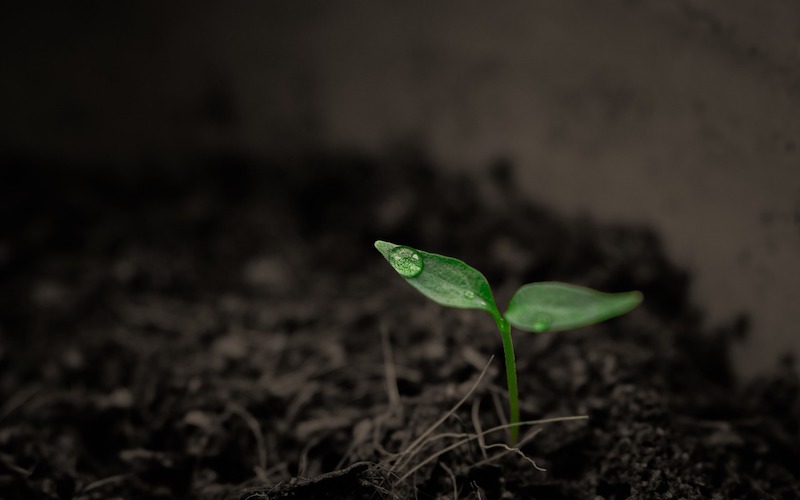In a clandestine, 40,000-square-foot cultivation facility in northern Arizona, we met with the founders of CEAD, Royce Birnbaum and Adam Klaasmeyer, a company that develops artificial intelligence applications for the cannabis industry.
These two are no strangers to innovation. Birnbaum, the lead back-end developer for the project, has had a career in developing systems for monitoring nuclear reactors for the Navy and AI technology for the defense industry, while Klaasmeyer, the front-end developer and coder, has contributed to projects for companies such as Atari and Microsoft.

The CEAD technology currently being tested at a cannabis research and development center in Arizona monitors operational and environmental systems including plant nutrition, growth rates, life cycles, and predictive pest outbreaks. In addition, it keeps a log of all movements made by the cultivation team and gathers data in regards to specific feeding and pruning schedules.
The machine learning capabilities take advantage of all of the data to continually expand it’s knowledge base. Initially, the AI system operates off of base assumptions. At the point the machine begins to learn all operational aspects of the cultivation, it then begins to present and suggest a list of options to the cultivator to prevent potential forecasted issues based on the data.
Imagine being able to predict not only the exact expected yield and harvest date of a plant but to be able to intuitively predict and hone in on many other aspects of cultivation. This is what AI brings to cultivation.
With AI and machine learning, one can now predict the exact density of a particular crop by analyzing specific data, giving the significant advantage of forecasting and preventing common issues, such as mold and fungus due to specific environmental conditions. This would enable a profound new level of control and data analytics for the cannabis space, all from an easy-to-use interface. It would provide a significant platform for interpreting the extreme nuances that relate to each of the thousands of strains being cultivated and give cultivators the ability to further isolate the benefits of the plant.
As Birnbaum explained: “One struggle most growers are facing is not only the need to differentiate themselves from the competition, but also the need to have successful, continuous cultivation cycles without potential for deviation or disaster as we see so often in the industry. CEAD provides any grow operation an unparalleled ability to predict when to water, fertilize, and harvest. This will enable an upsurge in quality, while reducing man power needed to maintain each plant, as well as give a comprehensive overview of all operations and outcomes related to cannabis cultivation.”
In technical terms, the CEAD machine learning system essentially acts as the hub connecting the AI platform to customizable sensor arrays. This enables real-time monitoring of the entire field’s humidity, temperature, PH, air speed, chlorophyll levels, etc. The AI then analyzes this data to provide resultant metrics such as harvest date, expected yield, watering timers, etc.
The company has begun offering a monthly subscription entitling customers to a base CEAD AI hardware unit, a collection of sensor arrays, customer support, installation, onsite onboarding, and employee training. CEAD has a goal to provide an end-to-end smart Cannabis Cultivation Control System (CCCS), prioritizing the highest attention to data control, monitoring, and communications.
With so much variety in plants, and the need for consistent and quality products – for both regulatory purposes and customer satisfaction – artificial intelligence may be another key in the growing legitimacy of the cannabis industry.






